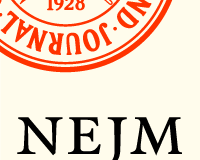
For the ninth year in a row, St. Petersburg received a perfect score on its Municipal Equality Index, which gauges the city’s LGBTQ+ inclusion for its policies and services.
The index from the advocacy group Human Right’s Campaign considers nondiscrimination laws, LGBTQ+ support services, and leadership and representation for LGBTQ+ equality, among other qualities.
Jim Nixon is St. Petersburg’s LGBTQ+ liaison. He says he’s proud of the city’s score, which was maintained despite recent passage of controversial state policies, such as restrictions on transgender health care and the Parental Rights in Education law, referred to by critics as “Don’t Say Gay.”
“These are all things that we have to battle. And having these bright blue dots, as we always joke and say, throughout Florida, and cities like Tampa, Fort Lauderdale, Miami, Jacksonville, all scoring really well on the municipal index shows that our core populations are being covered in those inclusive policies,” Nixon said.
Some of the improvements to inclusiveness in St. Petersburg, according to Nixon, include updating the city’s human rights ordinance as well as nondiscrimination policies, even for working with outside contractors and having solid LGBTQ+ representation in the police department and city offices.
He says the Human Rights Campaign index is valuable when trying to attract new businesses and tourists.
“When we look to go into the tech industry and encourage businesses to relocate to St. Pete, the HRC directly relates to livability,” Nixon said. “And when you look at livability for your employees, and who will be happy to relocate to a destination, looking at the HRC Municipal Equality Index is really important.”
And while the city has a score of 100, Nixon says there still are aspects of equality to work on, such as shoring up marriage equality benefits and getting rid of controversial conversion therapies.
“It’s faced a very expensive litigation, and more than not, not won,” Nixon said. “So, the city has to look at that and see if that’s something that we want to challenge and go into, knowing where the outcome more than likely will be.”
Nixon says his goal for the next year is highlighting more diverse and minority voices within the LGBTQ+ community in St. Pete. And, he says, St. Petersburg’s rich LGBTQ+ culture that it’s established in the past few decades is allowing the community to grow organically as well.
The cities of Tampa, Orlando, Fort Lauderdale, Hollywood, Oakland Park, and Wilton Manors also received scores of 100 on the equality index.
“Our gay and lesbian chamber of commerce has been around for 35 years, our gay and lesbian film festival just celebrated its 35th year, [St. Pete] Pride just celebrated 20 years,” Nixon said. “St. Pete has seen a renaissance, both in arts and culture, in going from God’s waiting room to being a choice destination, and I think the LGBTQ community has been at the foundation of that.”
Daytona Beach received the lowest score in the state for the cities that qualified based on population size, with 30 points.








